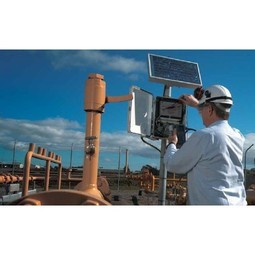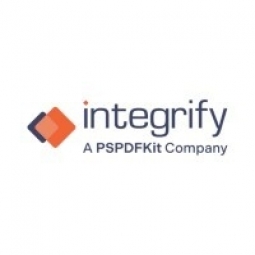Technology Category
- Application Infrastructure & Middleware - Database Management & Storage
- Cybersecurity & Privacy - Application Security
Applicable Industries
- Transportation
- Utilities
Applicable Functions
- Human Resources
- Warehouse & Inventory Management
Use Cases
- Autonomous Transport Systems
- Tamper Detection
Services
- System Integration
- Training
About The Customer
Northern Natural Gas is a company based in Omaha, Nebraska, operating an interstate natural gas pipeline that extends from the Permian Basin in Texas to the upper Midwest. The company provides transportation and storage services to approximately 75 utilities and numerous end-use customers in the upper Midwest. It also offers cross-haul and grid transportation between other interstate and intrastate pipelines in the Permian, Anadarko, Hugoton, and Midwest areas. As the company grew, it faced challenges with its approval process, which was becoming cumbersome and time-consuming for its 1,100 employees.
The Challenge
Northern Natural Gas (Northern), a Nebraska-based company operating an interstate natural gas pipeline, was facing challenges with its approval process. As the company expanded, the approval process became increasingly cumbersome and time-consuming for its 1,100 employees. The process, which relied on email and manual forwarding of messages for requests and approvals, lacked a reliable audit trail, leading to requests often getting lost in the routing process. Northern sought a solution that would provide secure, automatic notification of approvals, saving employees' time. They needed an audit-compliant security approval process with a reliable audit trail. The solution had to be fully functional, integrating seamlessly with existing systems at an affordable price. Furthermore, Northern required a product that could handle all levels of requests, from customer service interaction to internal employee matters.
The Solution
Northern opted for the Integrify solution due to its competitive pricing and the functionality it offered. Integrify is a flexible business process management tool that automates requests and streamlines approval processes. It provides form creation, routing definition, and tracking tools to those responsible for processing requests, thereby minimizing data entry and simplifying requests for approval and fulfillment. Being web-based, Integrify allows easy user accessibility and management of approval processes. It eliminates problems related to labor-intensive processes such as manual paper handling and email requests, reducing costs per transaction by 60 to 90 percent compared to paper-based processes. The Integrify team spent a week on-site installing and implementing the software. The only challenge during the installation was updating the internal information so the Active Directory database could ensure proper routing of requests. Upon completion, Northern had applied Integrify’s technology to several key areas of its business.
Operational Impact
Quantitative Benefit

Case Study missing?
Start adding your own!
Register with your work email and create a new case study profile for your business.
Related Case Studies.

Case Study
IoT Solutions for Smart City | Internet of Things Case Study
There were several challenges faced: It is challenging to build an appliance that can withstand a wide range of voltage fluctuations from as low at 90v to as high as 320v. Since the device would be installed in remote locations, its resilience was of paramount importance. The device would have to deal with poor network coverage and have the ability to store and re-transmit data if networks were not available, which is often the case in rural India. The device could store up to 30 days of data.

Case Study
Automation of the Oguz-Gabala-Baku water pipeline, Azerbaijan
The Oguz-Gabala-Baku water pipeline project dates back to plans from the 1970’s. Baku’s growth was historically driven by the booming oil industry and required the import of drinking water from outside of the city. Before the construction of the pipeline, some 60 percent of the city’s households received water for only a few hours daily. After completion of the project, 75 percent of the two million Baku residents are now served around the clock with potable water, based on World Health Organization (WHO) standards. The 262-kilometer pipeline requires no pumping station, but uses the altitude differences between the Caucasian mountains and the capital to supply 432,000 m³/d to the Ceyranbatan water reservoir. To the people of Baku, the pipeline is “the most important project not only in 2010, but of the last 20 years.”

Case Study
GPRS Mobile Network for Smart Metering
Around the world, the electricity supply industry is turning to ‘smart’ meters to lower costs, reduce emissions and improve the management of customer supplies. Smart meters collect detailed consumption information and using this feedback consumers can better understand their energy usage which in turn enables them to modify their consumption to save money and help to cut carbon emissions. A smart meter can be defined in many ways, but generally includes an element of two-way communication between the household meter and the utility provider to efficiently collect detailed energy usage data. Some implementations include consumer feedback beyond the energy bill to include online web data, SMS text messages or an information display in consumers’ premises. Providing a cost-effective, reliable communications mechanism is one of the most challenging aspects of a smart meter implementation. In New Zealand, the utilities have embraced smart metering and designed cost effective ways for it to be implemented. The New Zealand government has encouraged such a move to smart metering by ensuring the energy legislation is consistent with the delivery of benefits to the consumer while allowing innovation in this area. On the ground, AMS is a leader in the deployment of smart metering and associated services. Several of New Zealand’s energy retailers were looking for smart metering services for their residential and small business customers which will eventually account for over 500,000 meters when the multi-year national deployment program is concluded. To respond to these requirements, AMS needed to put together a solution that included data communications between each meter and the central data collection point and the solution proposed by Vodafone satisfied that requirement.

Case Study
Airport SCADA Systems Improve Service Levels
Modern airports are one of the busiest environments on Earth and rely on process automation equipment to ensure service operators achieve their KPIs. Increasingly airport SCADA systems are being used to control all aspects of the operation and associated facilities. This is because unplanned system downtime can cost dearly, both in terms of reduced revenues and the associated loss of customer satisfaction due to inevitable travel inconvenience and disruption.

Case Study
NB-IoT connected smart meters to improve gas metering in Shenzhen
Shenzhen Gas has a large fleet of existing gas meters, which are installed in a variety of hard to reach locations, such as indoors and underground, meaning that existing communications networks have struggled to maintain connectivity with all meters. The meter success rate is low, data transmissions are so far unstable and power consumption is too high. Against this background, Shenzhen Gas, China Telecom, Huawei, and Goldcard have jointly trialed NB-IoT gas meters to try and solve some of the challenges that the industry faces with today’s smart gas meters.

Case Study
IoT-based Fleet Intelligence Innovation
Speed to market is precious for DRVR, a rapidly growing start-up company. With a business model dependent on reliable mobile data, managers were spending their lives trying to negotiate data roaming deals with mobile network operators in different countries. And, even then, service quality was a constant concern.







